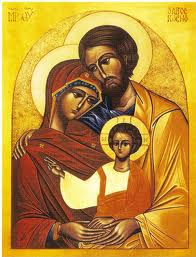In this installment of our continuing series, we hear from Veronica J. Rop, a Ph.D. candidate at the Catholic University of Eastern Africa.
Woman’s Perspective on the Role of Moral Theologian in the Church and Society
I’m delighted by the invitation to contribute to this blog. This is one of those opportunities that Catholic Theological Ethics in the World Church (CTEWC) has opened for African women and as one of the beneficiaries of their scholarship, I am glad to share my feminine perspective on the role of moral theologian in the Church and society. Given the few presences of African women in theological field in the Continent and fewer if not none in moral theology at the doctoral level, women’s contribution and role in theology is pivotal for its development.
Moral theology as a science of revelation and faith is guided by investigation and calls for discernment of truth made through the sense of faith. In this perspective, a moral theologian is interested in the impact of faith on human life. It is in this context that faith is also an object of theological investigation. Moral theologians have an important role in the Church, not merely to explain existing teachings of the Magisterium, but also to clarify and explain teachings implicit in Scripture and Tradition, so as to advance the understanding of morality. The Magisterial teaching on morality is backed with long experience of life, thoughts of generations and writings of theologians. The African experiences in that tradition have been minimal and even less so the contribution of women theologians. A feminine insight is therefore a welcome contribution.
Inculturation and liberation are two theological approaches that easily find a home among the African people. The moral formation implies an internalization of moral norms and values that motivates a person to conform one’s personal behaviour to moral norms and values of the community. Moral formation has a lot to do with customs and culture of the people. Christian morality is the relation between a human act and a person’s ultimate end or the norms of behaviour that flows from a persons’ ultimate end who is God, the Supreme Being.
Inculturation is then a way of interrogating our moral formation with the Gospel values while seeing to it that we are emancipated from customs that enslaves us to being set free for greater union with God, ancestors, the unborn and with all creation. A moral theologian is to search and point out to the community the norms of free and responsible human conduct in the light of revelation. The task of the theologian is to understand and explain the implication of faith to the Church to the community.
It is the role of a moral theologian to advance the course of a liberation theology that promotes the dignity of the human person, gender equality, gender justice and respect for the environment. This would be a liberation theology that frees all, and especially women in particular from oppressive cultural practices such as FGM, wife-inheritance, gender disparity in various spheres of society and feminization of HIV/AIDS. This is made possible with the inculturation of the Gospel and Christianization of our culture. The Gospel is never to be merely a message in words but a message incarnated in his Church, and through it, in society. A moral theologian then condemns those elements that suppress but favors aspects of African culture such as love, respect and value for human life, sacredness of environment, interdependence and interconnectivity in a web of life, in other words, promote communitarian spirit. It is a theologian’s responsibility to critique elements in culture and theological language that negate full life for all. In doing so, she/he engages positively and constructively in theology.
The need for global peace is an area that a moral theologian cannot overlook. Internal conflicts, terrorism and political instigated violence makes a significant and urgent demand on a moral theologian to engage culture and politics. Politics infused by the Gospel works towards the achievement of the common good and the creation of societal structures that promote integral human development, development of the whole person and of whole persons. There is a great need today to engage and enliven our political culture with gospel values, especially those of respect for human life, preferential option for the poor and gender justice. It is a global truth that those who suffer most from conflicts and atrocities of wars are women and children. This necessitates the need to incorporate their views on how to bring about lasting a peace in the world.
An African moral theologian incorporates aspects of revelation that has been neglected, such as hospitality, co-operation and sharing into moral theology. She/he takes openness, inclusiveness as the core of doing theology. A theologian brings into light that communitarian aspect of Christian calling and in solidarity with society becomes the voice of the voiceless. A Moral theologian is a voice of the many marginalized persons in society such as the unheard women and children. She/he is that prophet that speaks against cultural institutions, structures, and systems that are biased against others because of their gender or social status.
Faced with economic challenges that include corruption, a moral theologian is that hand that stretches out to offer the Church’s teaching about solidarity and universal destination of goods; are those feet that walk an extra mile to meet the people at the point of their ethical concerns so as to reflect with them the moral implications of Christ’s invitation to discipleship.
In a globalized world of today media has brought both positive and negative effects to society as never seen before, something that has to get the attention of an African moral theologian. Over the past few years social media in Africa has emerged as a very powerful frontier for mass communication. Cyber technology is increasingly becoming a key and powerful “tool box” of human communication, politicking, learning, information dissemination and an opportunity for holistic transformation. Mobile/cell phones are increasingly becoming not only a luxury but a necessity that even an illiterate person in a rural Africa arguably sees it useful. Culture being dynamic as opposed to static has an influence on morality and carries with it some repercussion. This means, a moral theologian is to engage in dialogue with the media and other disciplines because they too pose serious questions for the believer. Due to the pace of life that many people are forced to live, advances in science that offer them options that they never had before, the potentially confusing amount of information that impacts their lives through modern communications and information technologies, there is need for a sound, moral and ethical approach to media. The Moral theologian is not claiming to be an expert in media or in all spheres of society, but is to offer constructive criticism and solutions so that society can positively gain from other sciences.
Since the moral life of the African person is very much connected with the ancestors and the entire world (spiritual and physical), the role of moral theologian is to speak to the earth; bring into light the question of environment and its relation to the human person both as taught by the Church and lived by African people. A moral theologian is to assist the person (African) find a way to reconnect Christian faith and life as well as forge reconciliation, unity and peace among different communities in the Continent. This includes the need for feminist cultural hermeneutics as one of the appropriate analytical tool to critique culture because of the ambivalent effects upon women. It also means engaging with theologians outside Africa.
Veronica J. Rop is a member of the Assumption Sisters of Eldoret, a local congregation based in Kenya. She is a recipient of a CTEWC Scholarship for African women and a Ph.D. candidate in Sacred Theology with a specialization in Moral Theology at the Catholic University of Eastern Africa. Rop is a member of CTEWC-African Regional Committee and a contributor for the CTEWC Newsletter African-Forum. Her articles include “Escalation of Killings in Kenya: A Call for Respect for Human Life,” “Ushering African Women into the Year of Faith: Reflection on Motu Proprio Data,” “CTEWC in Africa after Trento: Engaging the African Synod,” “The African Synod: The Participation of Women in Reconciliation Justice and Peace,” and “The Challenge Posed by Apostolic Letter Mulieris Dignitatem to the African Perspective on the Dignity of Women.” She is a visiting lecturer at Tangaza University College, Nairobi




Trackbacks/Pingbacks